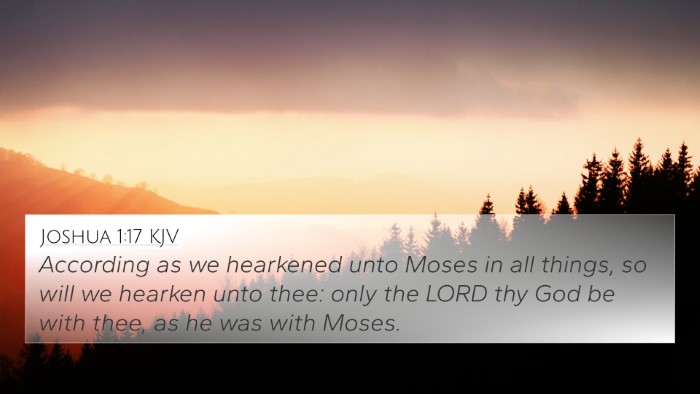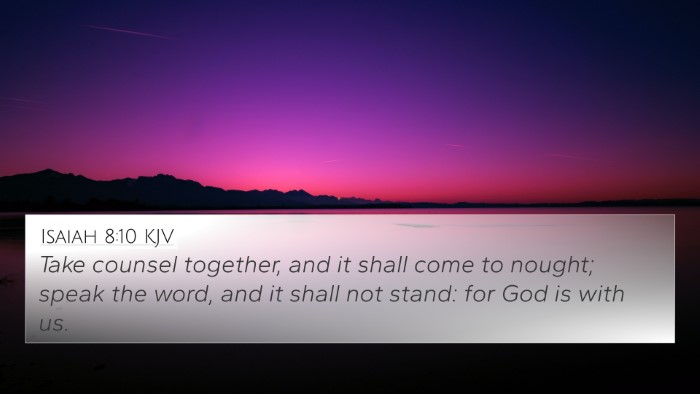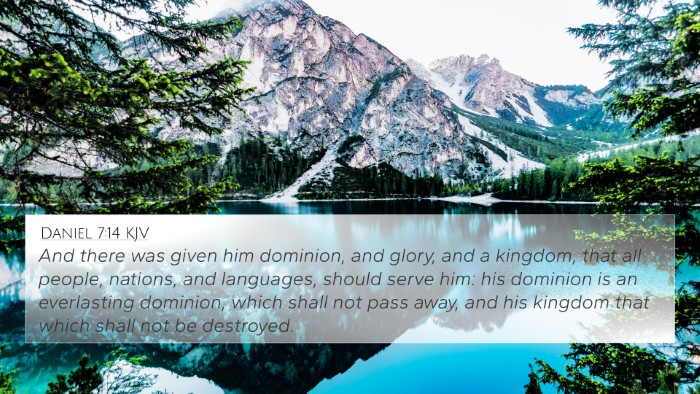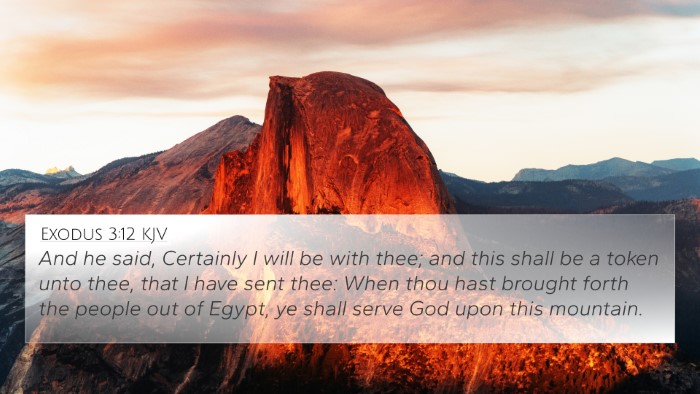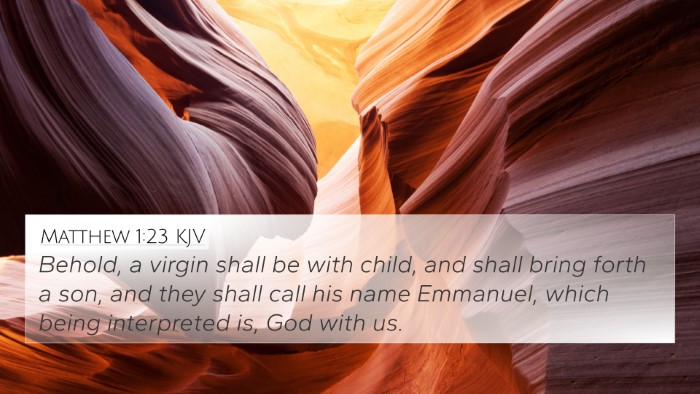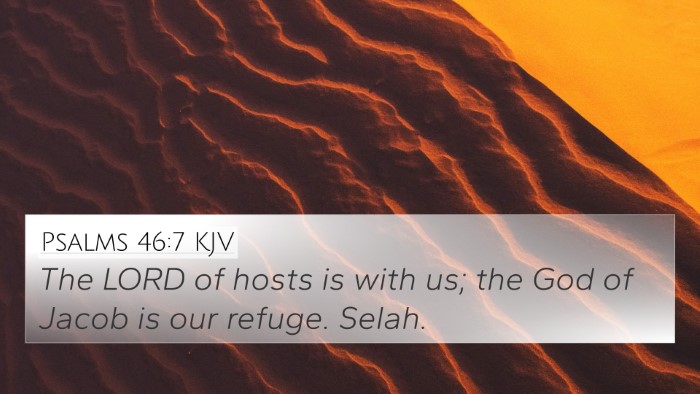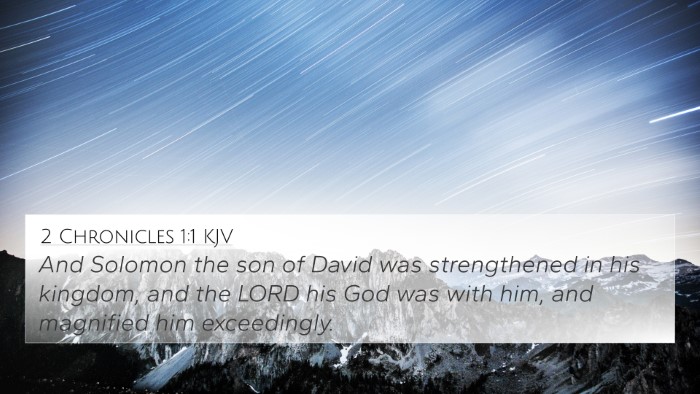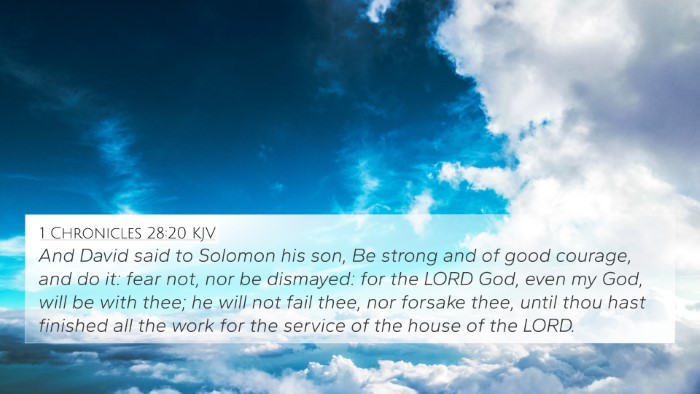Meaning and Interpretation of 1 Kings 1:37
Bible Verse: 1 Kings 1:37 - "As Yahweh lives, who has established me, and set me on the throne of my father David, and who has made me a house, as he promised, so will He establish his word." (Modern English Version)
Summary of Insights
This verse is a powerful declaration of God's faithfulness and sovereignty. The speaker, presumably Solomon, acknowledges the divine support in his ascension to the throne, emphasizing that it was God who not only established him but also fulfilled His promises concerning David's lineage. The verse encapsulates themes of divine providence, the fulfillment of covenant promises, and the assurance of God's presence in leadership.
Commentary Insights
Matthew Henry's Commentary
Matthew Henry reflects on the affirmation of God's promise and the confidence it instills in God's chosen leaders. He highlights how the acknowledgment of God’s sovereignty reassures Solomon that his reign is under divine guidance. He stresses the importance of recognizing God's role in establishing authority and the responsibility it entails for the leader to remain faithful to God.
Albert Barnes' Notes
Albert Barnes emphasizes the significance of Divine approval and ordination in the kingdom of Israel. He notes that Solomon's proclamation is not just a personal affirmation but serves as a public testament to God's unchanging nature and His faithfulness to uphold His word. Barnes points out that God's promises are interwoven throughout scripture, illustrating how this verse connects with the broader biblical narrative of God establishing His people.
Adam Clarke's Commentary
Adam Clarke discusses the historical and theological implications of this passage. He highlights the covenantal aspect, signifying that Solomon’s reign was both a fulfillment of God's promise to David and a continuation of God's plan for Israel. Clarke also observes the necessity of humility and dependence on God that leaders must exhibit, reiterating that true authority comes from a relationship with God.
Bible Verse Cross-References
- 2 Samuel 7:12-16 - God's covenant with David regarding his lineage.
- 1 Chronicles 28:5 - Solomon chosen as king by divine decree.
- Psalms 89:3-4 - God's promise to establish David's throne forever.
- Psalms 132:11-12 - A reaffirmation of God's oath to David regarding his offspring.
- Jeremiah 33:17-22 - Promises of David's everlasting throne.
- Luke 1:32-33 - A New Testament reference to Christ's lineage through David.
- Hebrews 1:5 - The fulfillment of God's promise regarding the Son as the heir.
Connections between Bible Verses
This verse establishes a vital link in the narrative of redemptive history, where God's promises echo throughout generations. The acknowledgement made by Solomon serves as a testament to the consistent theme of God’s faithfulness illustrated by linking scriptures that affirm the covenant made with David. It also points to the recognition that the lineage through which Jesus comes is rooted in this divine promise.
Thematic Bible Verse Connections
The themes of kingship, divine promise, and covenant are central to this passage. They find expression not only in the historical context of Israel but also within the overarching narrative that culminates in the New Testament with Christ's own declaration of kingship. Such themes are critical for understanding the role of scriptural cross-referencing in Bible study, allowing believers to draw parallels not just within the Old Testament but also into the New Testament writings.
Cross-Referencing Bible Study Methods
When engaging in Bible study, utilizing tools such as a Bible concordance can greatly enhance one’s understanding of interconnected scripture. Performing a comparative Bible verse analysis enables students of the Bible to explore how verses relate to one another, thereby enriching their comprehension of Scriptural themes.
Importance of Cross-Referencing for Interpretation
Cross-referencing is essential for inter-Biblical dialogue, allowing one to see the continuity of God's work from the Old Testament to the New Testament. By identifying connections between passages, readers can glean richer theological insights and a deeper appreciation of God's plan for humanity.
Conclusion
1 Kings 1:37 serves as a pivotal affirmation of God’s promises regarding leadership and the establishment of His people. By understanding the intricate web of connections that exist between this verse and others throughout the Bible, believers are encouraged to engage in a cross-reference Bible study approach that fosters a holistic understanding of their faith.






